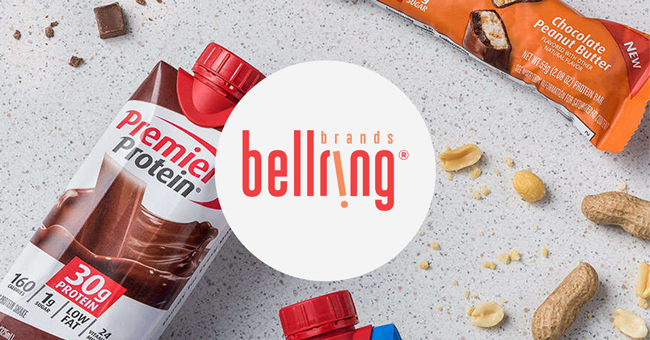

BellRing Brands, the holding company for Post Consumer Brands’s nutrition entities, including Premier Protein and Dymatize, reported a net sales increase of 9.6% to $282.1 million for the second fiscal quarter ending March 31, according to the company’s earnings report last week.
The company reported an operating profit of $15.6 million. Gross profit fell 1.4% to $87 million, representing 30.8% of net sales, compared to a gross profit of $88.2 million in the previous year. Operating profit was $15.6 million, down 55.6% ($19.5 million) compared to last year. Adjusted EBITDA was $42.2 million. BellRing also raised its fiscal year 2021 net sales guidance to $1.17-$1.20 billion and its adjusted EBITDA guidance to $214-$220 million.
Net sales for all Premier Protein products — which includes powders, bars and RTD shakes –grew 8.2%, with volume up 8.4% in the period. Independently, the RTD shake line alone grew net sales 7.7% and volume increased 8%. According to the company, net sales benefited from growing distribution for the RTD line, promotions and “favorable product and customer mix,” but were offset by lapping last year’s pandemic-inspired panic buying surge. Dollar consumption of Premier Protein’s RTD line increased 20.3% in the 13-week period ending April 3, the company reported.
The company’s supplement brand, Dymatize, saw net sales grow 28.8% and volume improve 10%, and also benefitted from distribution gains “with strong growth in the international, club, mass and ecommerce channels.”
Net sales for all other BellRing brands decreased by 7.3%.
Speaking to investors and analysts during an earnings call Friday, BellRing president and CEO Darcy Davenport highlighted the sales momentum of its leading brands, but warned that the company continues to face cost pressures as inflation outpaces expectations. Prices for the Premier Protein shakes will increase this quarter which, combined with cost-out programs, are expected to offset commodity and freight headwinds.
According to Davenport, ecommerce, food and mass were the strongest channels for BellRing in the quarter, each “growing nearly 60%” year-over-year. Premier Protein household penetration reached an all-time high of 7.4%, an increase of 12% year-over-year, and its repeat rate for the shake line is 51%. Premier Protein’s powdered products were up 144% in the quarter, driven by distribution expansion and velocity increases, Davenport said.
“We have a portfolio of strong brands that target complementary consumers,” Davenport said on the call. “Our advertising and promotions are working, driving growth and household penetration. Our distribution continues to meaningfully build. Our new products are generating consumer excitement and are thriving in the market, and our innovation pipeline is the strongest it has ever been.”
As the pandemic winds down in the U.S., Davenport said she expects growth for convenient nutrition products growth to accelerate with “additional tailwinds” from increased mobility and business reopenings.
BellRing has also finalized plans to discontinue its Supreme Protein brand of bars. The line included Caramel Nut Chocolate and Peanut Butter Crunch flavored bars with 30 grams of protein and were available on Amazon. Customer relationships and brand trademarks will be fully closed down by June 1.
Speaking during the call’s Q&A portion, Davenport said BellRing’s focus is primarily on beverages, both RTD and powdered, and the company has “pulled away from bars” domestically, but will continue to grow the business in the European Union.
BellRing, she added, is continuing to emphasize innovation and has expanded its R&D team to focus on RTD and powdered products. The company is currently exploring new functionalities and has been “encouraged” by strong sales for its caffeinated Cafe Latte Premier Protein shake, which Davenport said has opened up new use occasions as a breakfast product. Davenport said the brand will also seek to promote its immunity boosting properties beginning this summer.
“When you look at the pipeline, we still have a few new products that are coming out later this year,” she said. “I talked about the immunity claim, but also this idea of expanding flavor, it is working. It’s working from a household penetration and a buy rate standpoint. So we’re going to continue that.… But then we will also really elevate the function.”
For Dymatize, the company will continue its strategy of expanding within the mass channel, Davenport said. Flavor innovations for its ISO100 flagship product, including brand partnerships with Pebbles cereal, have also driven consumer interest.
“We figured out the recipe that works,” she said. “I think the old Dymatize of only being sold in the specialty channel was just too limited. The consumer is everywhere, and they shop across channels, so we’re expanding it. The specialty channel is still very important to us and will continue to be. But we think there’s a ton of opportunities that ecommerce is doing incredibly well, and then there’s a lot of growth within that.”